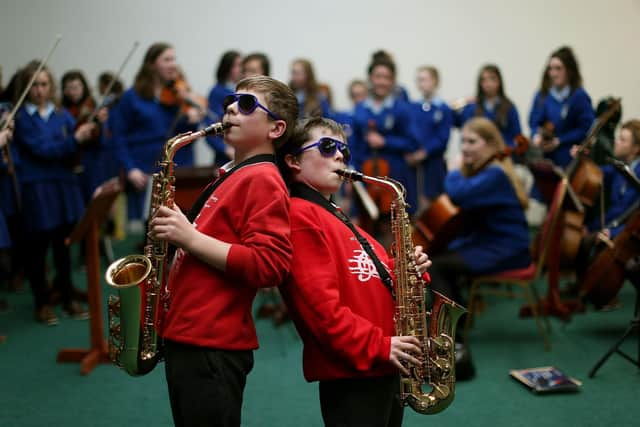With just 40 primary school music teachers in Scotland, an obvious attainment gap is growing – Linda Boyd
Parents who bring their children to our school often have one thing in common. They don’t necessarily want their kids to become rock stars or professional musicians. They don’t even mind if, a few weeks down the line, they walk back out the door and take up an altogether different hobby.
For them, it’s the opportunity they crave: the possibility that, if their son or daughter has an aptitude or enthusiasm for a musical instrument, that it can be sufficiently explored. We’ve seen more of these families make enquiries in recent years, and the average age of participants is now significantly younger.
Advertisement
Hide AdAdvertisement
Hide AdThat’s partly because, despite sterling efforts to provide free music tuition in Scotland’s secondary schools, things in primaries have gone backwards. And that’s fine for families who have the time and resources to take their children’s musical potential out of the state system and into the grateful hands of private tutors.
But there’s an obvious attainment gap developing for those who can’t. Last week, Scotland’s pre-eminent composer Sir James MacMillan criticised the state of play, and no wonder. He wants today’s youngsters to be able to walk down the same avenues he did, and he’s worried young Scottish pupils will be left behind in comparison to their international contemporaries.
There are now just 40 teachers across Scotland’s primary schools specialising in music tuition, which is barely one per local authority. How on earth are they supposed to encourage, harness, mentor and sometimes cajole talented young people with immense potential if they are so thinly spread?
We regularly see with our own eyes how the life of a primary-aged child can be radically improved by the discipline and satisfaction that comes with learning an instrument. Their performance across other academic areas almost always improves, and it has positive impacts on their social development and overall behaviour. This is true whether the child is learning the piano, the violin or the drums.
It allows them further opportunities to meet friends, learn new skills, record their work and share it widely, and even perform in front of audiences. These are formative and precious experiences that can’t be replicated in any other area of education.


The fact the number of music teachers in primaries has more than halved since 2008 would suggest financial cutbacks in this area, or perhaps just a rejigging of academic priorities. But if decision-makers want to play the long game, they should be ramping up the number of specialists in our schools.
Every child deserves at least the opportunity to investigate a musical pursuit from as early an age as possible, irrespective of background and deprivation. Some will flourish, others will leave and return to it when they’re more mature, and there will be those who put down the instrument and happily never pick it up again.
It’s the opportunity that’s the key. No child in Scotland should miss their calling because the chance wasn’t there to explore it. A bit more focus and investment in this crucial area will have immense societal benefits, and help get a tune out of the next generation in the process.
Linda Boyd is director of Morningside School of Music
Comments
Want to join the conversation? Please or to comment on this article.